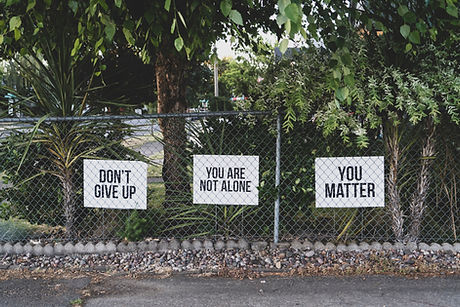Trauma

Trauma is an Emotional Response to a Terrible Event
- American Psychological Association
After a distressing event our body and mind often go into a state of shock as we attempt to process the event. This can lead to a variety of unpleasant symptoms. Some symptoms may be short term, while others can stay with us until we get help. I encourage you to read through this page and evaluate if it might be time to reach out for a helping hand.

What Causes Trauma?
Any distressing event can produce a trauma response. Some examples include:
-
A car accident
-
Abuse
-
Rape or sexual assault
-
Severe illness or injury
-
Being the victim or witnessing an act of violence
-
A natural disaster (fire, flood, tornado etc.)
-
The death of a loved one
-
Childhood neglect or abuse
Symptoms Associated With Trauma
-
Anger or irritability
-
Flashbacks, nightmares or intrusive memories
-
Shock, denial or disbelief
-
Confusion or difficulty concentrating
-
Anxiety
-
Depression
-
Feelings of guilt or shame
-
Withdrawing from others or isolating
-
Feeling disconnected or numb
-
Insomnia
-
Fatigue
-
Muscle tension
-
Racing heartbeat
-
Lack of interest in previously enjoyed activities
-
Difficulty experiencing positive emotions
-
Self destructive behaviour
-
Being easily startled
-
Constantly looking out for danger
How Do We Treat Trauma?
-
Set up a support network
-
Work with a doctor
-
With a therapist work through
-
Emotions tied to the event
-
Negative patterns of thinking
-
Symptoms associated with the event (Depression/Anxiety)
-
Develop coping skills to deal with symptoms and intrusive thoughts
-
Process through feelings of guilt or shame linked with the event
-
Utilize EMDR to desensitize and reprocess the event
-
If you are ready to seek help, reach out for a free 15 minute consultation with one of our therapists today.
